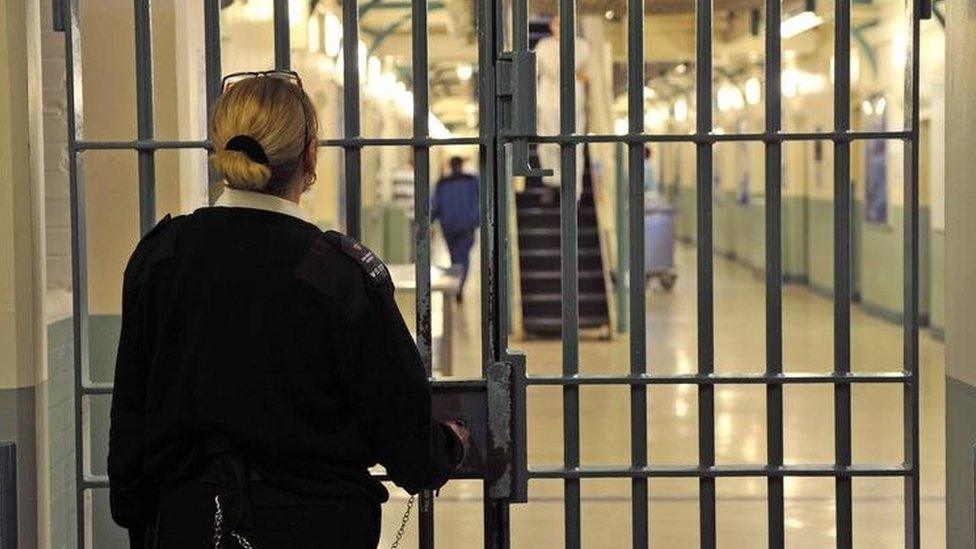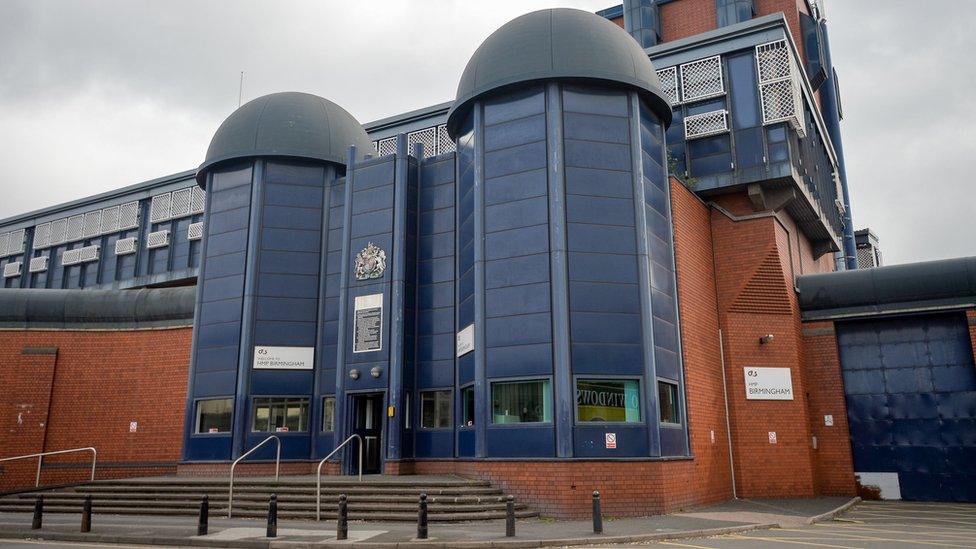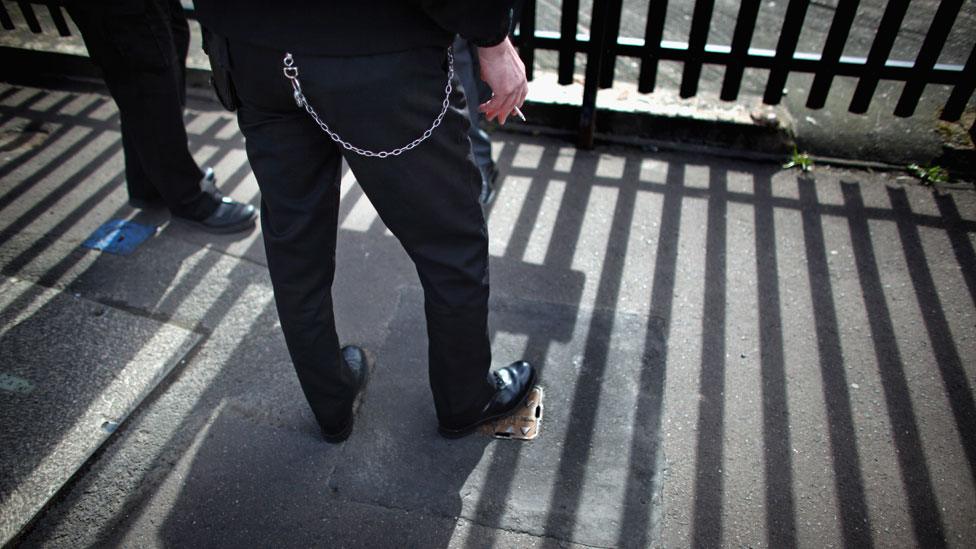Prisoner release checks 'put public at risk' - chief inspector
- Published

The safety of the public is being put at risk by thousands of prisoners being released without proper assessments, the government has been told.
Peter Clarke, the chief inspector of prisons, also found suicides had risen by 15% in a year in England and Wales.
In his 2018-19 annual report,, external Mr Clarke described the rising number of prisoner suicides and self-harm as a "scandal".
He also found the response to the "deluge of drugs" in prisons had been "too slow" and "unsophisticated".
In his report, Mr Clarke said thousands of prisoners who were potentially a "high risk of harm" to the public were being released "without proper assessment".
An inmate's assessment should be regularly updated, he said, but sometimes there was no document at all or the paperwork was out of date.
He added that the response to the problem, which had been raised repeatedly, had been "poor".
There were 83 suicides in male prisons in 2018-19, an increase from 72 the previous year, the report said.
Mr Clarke said levels of self-harm were "disturbingly high", rising in two thirds of the adult male prisons inspected.
He suggested that it was time for an independent inquiry to tackle the "scandal" of people dying in state care in "preventable circumstances".

'Fleas, cockroaches and rodents'

Mr Clarke said he would "never forget" the squalid conditions he encountered on a visit to Birmingham prison.
He recalled a blood-stained shower, which was littered with rat droppings.
Birmingham had the worst examples of living conditions, his report said, with cells "dirty, cramped and overcrowded".
Vulnerable prisoners were found living in squalid cells which were not fit for habitation.
"Rubbish was left lying around in bags and there were problems with fleas, cockroaches and rodents," the report said.
One prisoner lived in a "filthy flooded cell" and the blood of another - who had self-harmed two days earlier - had not been cleaned from the floor.

The report warned the "appalling impact" of illicit drugs in prisons had been underestimated.
Mr Clarke said there was a "reluctance" to invest in available technology to detect drugs which was a "great shame" given their "destructive impact".
The report also found:
Out of 28 prisons inspected, 22 were found to be unsafe
Outcomes for women prisoners was better than for men
A "large cohort" of sex offenders could not access rehabilitation programmes in prisons
Half of the children in custody surveyed said they had been restrained during their time in detention - the highest figure since records began in 2002
Levels of violence also remained high at young offender institutions and secure training centres with bullying a "constant concern"
'Self-harm endemic'
Mr Clarke praised the "bravery" of prison staff, saying their work was "difficult, often dangerous, largely unseen by the public and, as a result, little understood".
The Ministry of Justice said it had improved its "risk assessment and sentencing planning processes" and high-risk prisoners were subject to "various strict risk assessments".
It also said it had improved the provision of mental health support and trained staff on how to care for inmates at risk of self-harm.
Deborah Coles, director of charity Inquest, said "self-harm, violence and deaths" were endemic in the prison system and recommendations were "systemically ignored".
She called for urgent action to reduce the use of prison, redirect resources into community alternatives and "hold those involved legally accountable for deaths across all state institutions".
- Published25 August 2018

- Published30 April 2019
